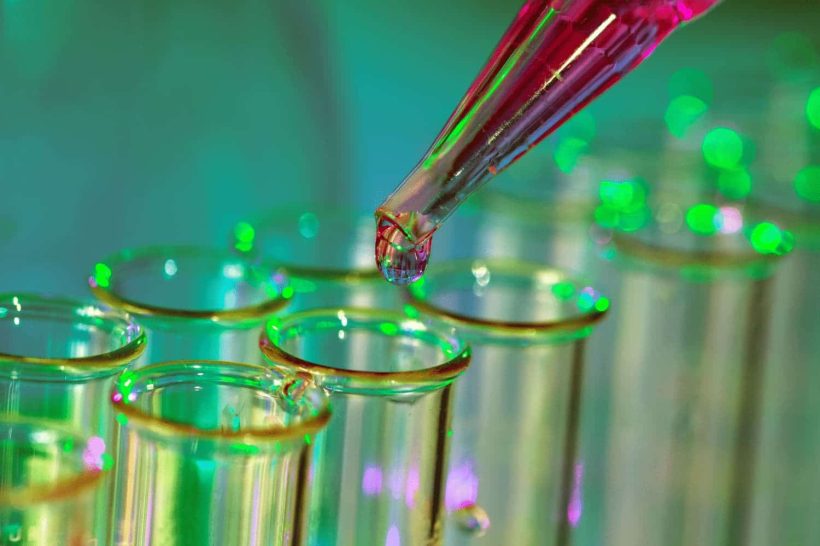In a working draft of research prepared by Canadian scientists, study authors claim that their findings are “crucial for the future analysis of the effects of medical cannabis on COVID-19.”
As Florida’s leading medical marijuana physicians, CannaMD breaks down the most important facts from this headline-grabbing study – including what we know and, perhaps more importantly: what we still don’t know about cannabis and the novel coronavirus, COVID-19.
COVID-19 Basics: ACE2
As defined by the Centers for Disease Control & Prevention (CDC), COVID-19 is a novel (or previously unidentified) coronavirus that causes symptoms such as cough, shortness of breath or difficulty breathing, fever, chills, muscle pain, sore throat, and new loss of taste or smell.
COVID-19 demonstrates fast human-to-human transmission and, like other respiratory pathogens, is transmitted through respiratory droplets. As the scientists behind today’s study explain:
Currently, there is a global pandemic of COVID-19 disease caused by the SARS-CoV2 zoonotic coronavirus […] It is now well accepted that angiotensin-converting enzyme II (ACE2) is the cell receptor of SARS-CoV2 and the main route for receptor-mediated entry of the virus into the human host.
Translation?
Cells that express a particular enzyme called ACE2 are “critical viral gateways.” ACE2 is expressed in lung tissue, as well as oral and nasal mucosa, kidney, testes, and the gastrointestinal track. Therefore, altering levels of ACE2 could, as researchers put it, “prove a plausible strategy” for decreasing disease susceptibility:
Numerous studies have reported high levels of ACE2 in the lower respiratory tract, and higher levels of ACE2 expression, such as those seen in smokers and patients with chronic obstructive pulmonary disease (COPD), were associated with higher COVID-19 predisposition and more severe disease.
But what does marijuana have to do with ACE2?
Why Study Marijuana?
As the study authors acknowledge:
Cannabis sativa, especially one high in the anti-inflammatory cannabinoid cannabidiol (CBD), has been proposed to modulate gene expression and inflammation and is under investigation for several potential therapeutic applications against cancer and various inflammatory diseases.
Working under a Health Canada research license, scientists involved with the study developed over 800 new cannabis lines and extracts, as well as a method of using them to regulate gene expression and molecular cascades that drive inflammation and other vital cellular processes.
And then something interesting happened:
Serendipitously, we noted that cannabis may also affect ACE2.
Hypothesizing that high-CBD cannabis extracts may be used to modulate ACE2 expression in COVID- 19 target tissues, researchers went to work.
Marijuana & COVID-19 Study Results
Using artificial human 3D models of oral, airway, and intestinal tissues, the team was met with success:
We identified 13 high-CBD cannabis extracts that modulate ACE2 gene expression and ACE2 protein levels.
Our initial data suggest that some C. sativa extract down-regulate serine protease TMPRSS2, another critical protein required for SARS-CoV2 entry into host cells.
While our most effective extracts require further large-scale validation, our study is crucial for the future analysis of the effects of medical cannabis on COVID-19.
Writing that “the extracts of our most successful and novel high-CBD C. sativa lines, pending further investigation, may become a useful and safe addition to the treatment of COVID-19 as an adjunct therapy,” researchers suggest that such extracts might be used to develop preventative treatments in the form of mouthwash and throat gargle products for both clinical and at-home use.
The study concludes:
The observed down-regulation of ACE2 gene expression by several tested extracts of C. sativa is a novel and crucial finding.
Our results lay a foundation for further in-depth analysis of the effects of C. sativa on the molecular etiology and pathogenesis of COVID-19, as well as other viral diseases in which viruses use the ACE2 receptor as a molecular gateway.
Note: Study extracts were applied via media. Application was intended to model medical delivery, such as local mouthwash applications, encapsulated extracts and dosed oils, and inhalers or nebulizers. Therefore results cannot be extrapolated to the effects of cannabis smoking.
Study authors also add a word of caution:
In light of recent findings that tobacco smoking increases ACE2 levels and exacerbates clinical outcomes of COVID-19, the effects of cannabis smoking on the levels of ACE2 expression should be carefully investigated.
The current study is still in working draft and has not yet completed the peer-review process. CannaMD will continue to keep patients updated as more information becomes available.





